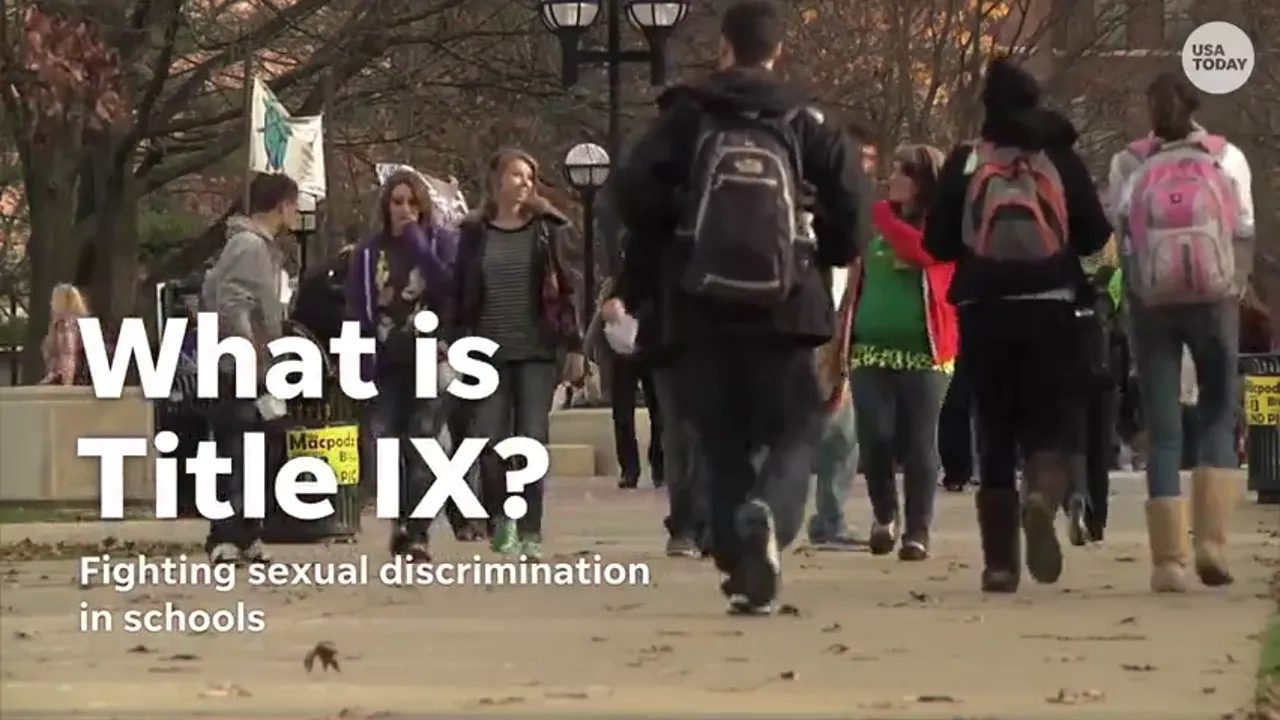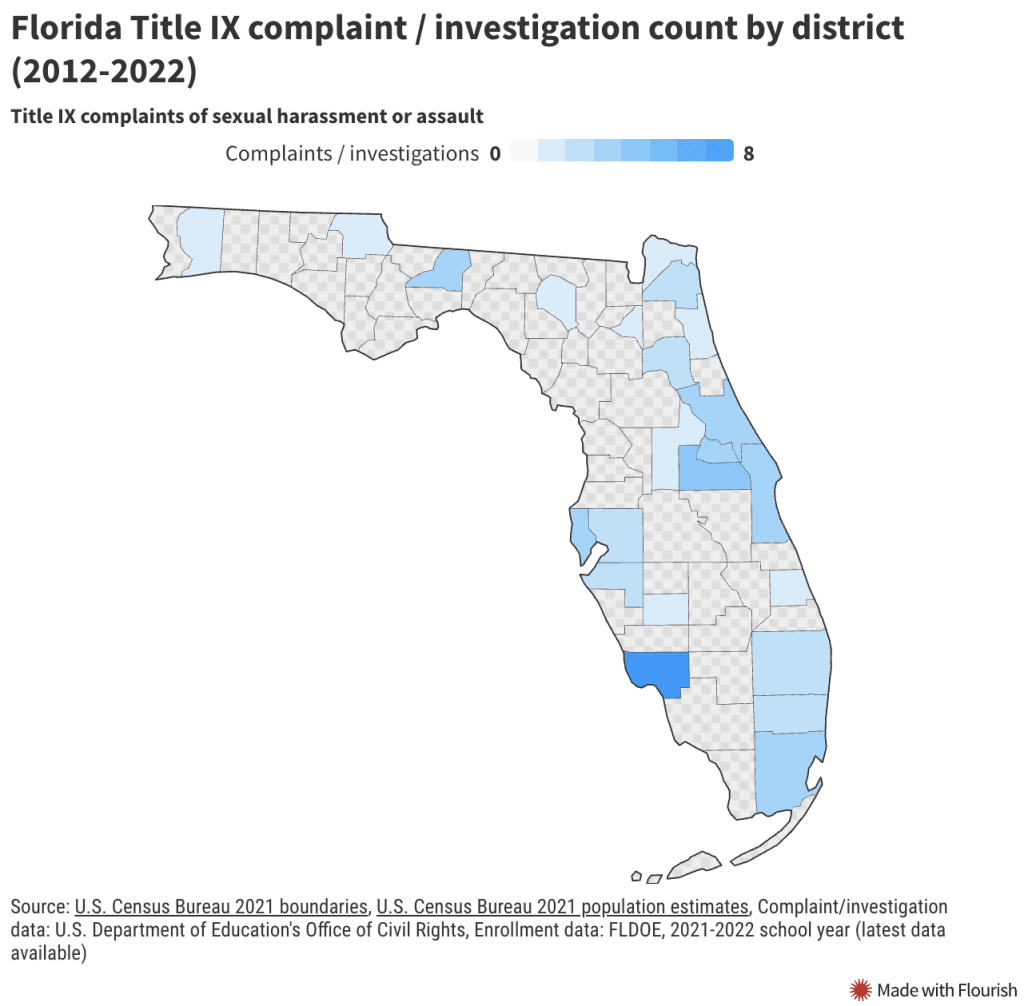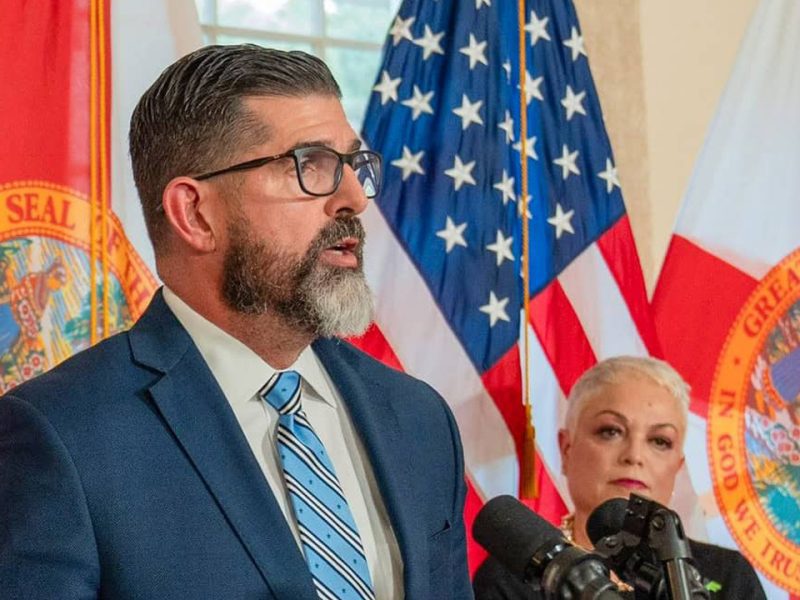
What Lee County Public Schools does to encourage Title IX investigations
Naples Daily News | By Kate Cimini | May 16, 2023
While most K-12 Florida districts didn’t make a single Title IX report between December 2012 and 2022, the Lee County School District stood out.
It’s average number of Title IX complaints per 100,000 students is higher than all other districts in the state, and sits slightly above the national average.
Title IX Coordinator and Director of Positive Prevention Chuck Bradley spoke with The News-Press/Naples Daily News about the steps that he, his coworkers and his district have taken to ensure that students are aware of Title IX’s various protections and how to utilize them to keep themselves and others safe.
In essence, Title IX protects people who work or attend school at a federally-funded institution from discrimination based on sex, including sexual assault, harassment and voyeurism. This means that if someone is discriminated against in this fashion, they can make a complaint and receive supportive measures while an investigation is being conducted. These may continue, and the perpetrator may face repercussions if the complaint is found to be accurate.
Bradley deals with both Title IX and Title VI investigations on the student side. The latter of the two deals with ethnicity and race. He also works with students with disabilities under Section 504.
Statewide, Florida averaged just over 2 complaints per 100,000 students between 2012 and 2022. In Lee, the district averaged 8 complaints per 100,000 students.
“I will say we err on the side of investigating when it meets the requirement of Title IX,” Bradley said. “Under Title IX, the requirement is that there’s actual knowledge of a violation: sexual harassment or discrimination in an educational program. When it meets that criteria, we do initiate an investigation.”
Not all investigations go all the way through the process, Bradley acknowledged. In some cases, the complainant may withdraw their complaint, move, or otherwise bring an investigation to a close, he said.
“And in some cases, as the complaint is fielded, it is determined not to be an actual Title IX complaint.”

A model for other Florida districts
According to Bradley, who was hired as Lee County’s equity coordinator in 2018, the revamp of the district’s equity program was kicked off by a group of concerned parents. After reviewing their concerns, district leadership saw the need to improve its response to Title IX violations, and set about doing so.
As Bradley was helping to revamp the Title IX and equity system, he said they heavily examined Orange County’s public school district. They also sought out information on best practices from the Association of Title IX Administrators and continued to fine-tune their own practices.
The district has translated various resources into Spanish and Haitian Creole, and has started connecting survivors and accused perpetrators to mental health support and ensuring safety measures are in place during the time of the investigation.
“I don’t know that every district has gone to that extent,” Bradley said. “It takes a lot of resources in terms of personnel, and having that additional support, especially at the district level, to ensure that the process is happening.”
What does Lee do differently?
Under former Secretary of Education Betsy DeVos, the U.S. Department of Education created a set of steps that schools were required to follow during a Title IX investigation, requiring them to collect information, notify parties of investigative interviews, meetings or hearings, give complainants and the accused opportunity to engage an advisor, such as an attorney, and more.
“We took that to heart and we built a Title IX complaint resolution system for the district,” Bradley said, explaining that it made reporting easier and more uniform.
In Lee:
- Administrators and teachers also go through an annual Title IX training, and Bradley said district students are shown a YouTube video every year with an overview of Title IX.
- Each school has its own equity coordinator, including the campuses dedicated to adult education.
- Lee County employs eight campus-level equity coordinators in addition to Bradley and a second district-level equity coordinator, whose job it is to deal with equity concerns pertaining to faculty and staff.
- Every classroom has a copy of the district’s nondiscrimination statement, contact information for that school’s equity coordinator, as well as all the district equity coordinators, Bradley said.
The campus equity coordinator position is a part-time position mainly taken on by a teacher or administrator in that school. Coordinators are paid a small stipend of about $1,000 annually by the district, Bradley said, though he did not know the exact amount.
Although it took a little time to get staff to understand they had to respond to allegations of sexual harassment with a Title IX investigation first, Bradley said they’ve hit a good rhythm.
“What has changed is the separation of roles and then wrapping around with safety measure,” Bradley said. “That is a big part of the equity coordinator’s role: to make sure that the victim and the accused are both provided safety measures, which may include change of classroom contact with a counselor.”



